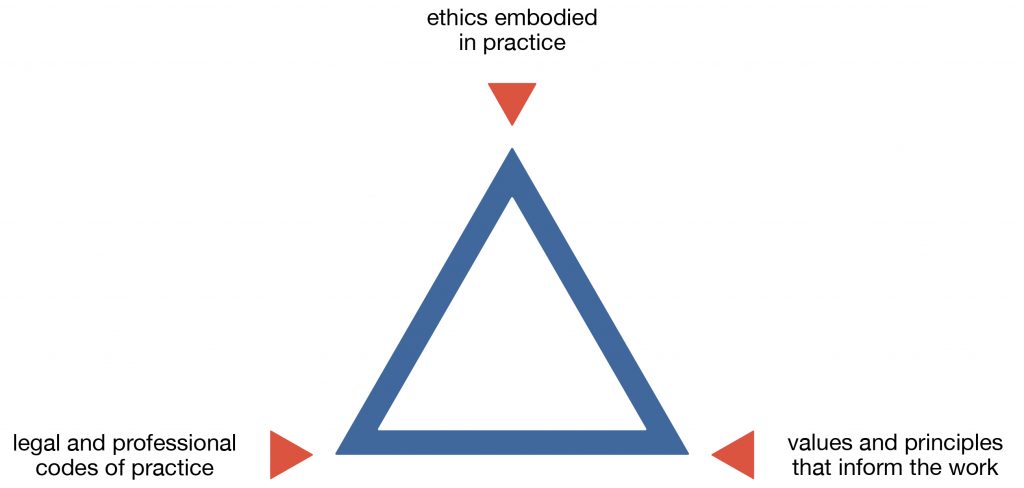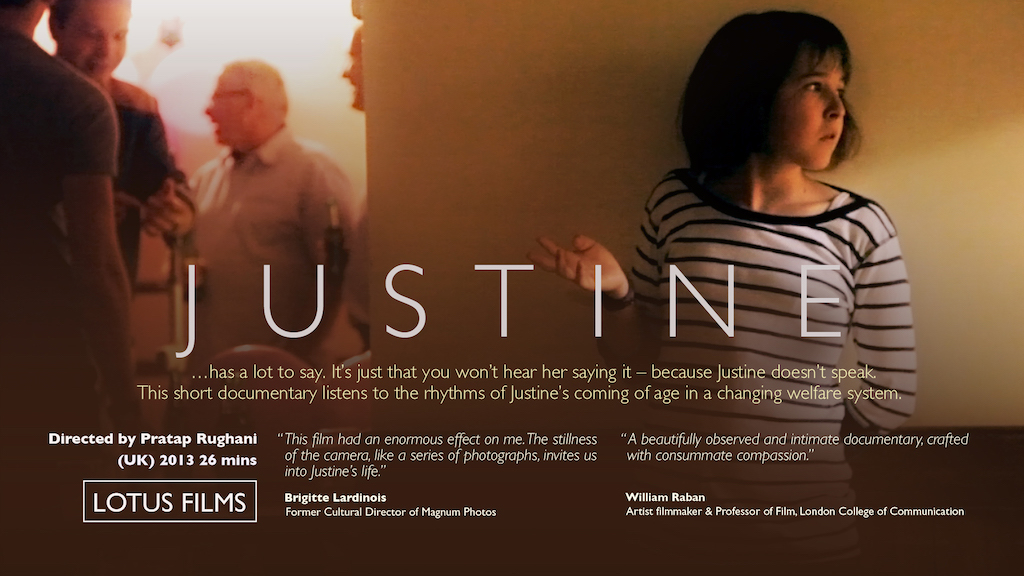Welcome to Ethics for Making, a space for students, teachers and makers to explore ethics in creative arts practice, using a documentary film “Justine” as our starting point
Watch the welcome video
Why this website? “Justine” was shown in many places and generated debate about the ethics of making creative work. We distilled the debate to ask key questions about the choices made. Can you use this discussion to ask parallel questions of your ethics in making, teaching and learning?
Please watch the trailer here (Video: 2 minutes 2 seconds) and the film here (Video: 26 minutes 49 seconds)
1. Watch the film
2. Does it raise any ethical questions for you?
3. Navigate the site to see what ethical questions came up for makers and audiences
4. How do the key themes influence your own practice?
Consent, Collaboration, Freedom, Representation and Responsibility.
“I also think the website works for those who haven’t seen the film as they get to understand it from the many interviews captured here.“
Marina Cantacuzino, journalist and Founder of The Forgiveness Project
What is the “Ethics for Making” website?
Professor of Documentary Practices, Dr Pratap Rughani, Associate Dean of Research, London College of Communication, University of the Arts London, Director of Lotus Films, and Project Leader, introduction.

Legal and professional
What codes of practice guide your area of creative work? Key legislation includes the Equality Act, defamation and libel laws.
Our practice
Think about how your own practice (as maker, teacher, student, researcher) relates to the other points of the triangle.
Values and principles
What values do you want people to sense in your work? Inclusion? Free expression? Anti-racism? Diversity? Respect for participants? Integrity and rigour?
Is there a quote that expresses your values? Can it guide you in the ethics of making?
The production team on ‘Justine’ like these:
“The reference to the other is an awakening, an awakening to proximity” Emmanuel Lévinas (1989:178)
‘In the context of power relations, speaking for, about, and on behalf of, is very different from speaking with and nearby… what has to be given up first and foremost is the voice of omniscient knowledge’ Trinh T Minh-ha (2008: 118–19)
